
Ha'ano: A Serene Paradise in Tonga
Ha'ano, a peaceful island in the Ha'apai group of Tonga, is a hidden gem waiting to be discovered. This tranquil destination offers pristine beaches, vibrant coral reefs, and a rich cultural heritage that promises an unforgettable experience for every visitor. Upon arriving in Ha'ano, you'll be greeted by the island's friendly locals and their warm hospitality. The slow pace of life here allows you to unwind and truly appreciate the natural beauty surrounding you. Whether you are strolling along the powdery white sand beaches or exploring the lush landscapes, Ha'ano provides a perfect escape from the hustle and bustle of modern life. The island's underwater world is equally mesmerizing. Snorkeling and diving enthusiasts will be thrilled by the colorful marine life and stunning coral formations. If you're lucky, you might even spot a humpback whale during the migration season. The crystal-clear waters make it easy to lose yourself in the underwater paradise. Cultural experiences in Ha'ano are also a highlight. The island's rich history and traditions are evident in the local dances, music, and crafts. Visiting the villages gives you a chance to learn about the Tongan way of life, sample delicious local cuisine, and participate in traditional activities. Ha'ano is not just a destination; it's a journey into the heart of Tonga's natural and cultural wonders. Its serene environment and genuine charm make it an ideal spot for those looking to reconnect with nature and immerse themselves in a unique cultural experience.
Local tips in Ha'ano
- Best time to visit Ha'ano is between May and October for pleasant weather and whale watching opportunities.
- Respect local customs and traditions. Dress modestly, especially when visiting villages.
- Bring your own snorkeling gear for the best experience, as rentals may be limited.
- Cash is essential. There are no ATMs on the island, so ensure you have enough Tongan Paʻanga.
- Try the local Tongan dishes like 'otai (fruit drink) and lu pulu (meat wrapped in taro leaves).
When is the best time to go to Ha'ano?
Iconic landmarks you can’t miss
Mapu'a Vaea Blowholes
Discover the breathtaking Mapu'a Vaea Blowholes, a stunning natural preserve in Tonga where the ocean meets the sky.
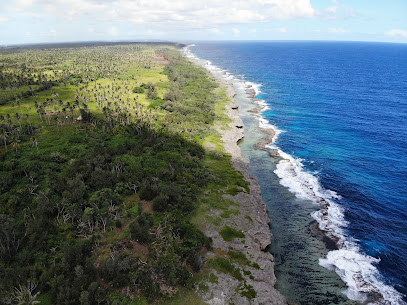
Royal Palace of Tonga
Experience the splendor of the Royal Palace of Tonga, the official residence of the Tongan monarchy, where history and culture come alive.
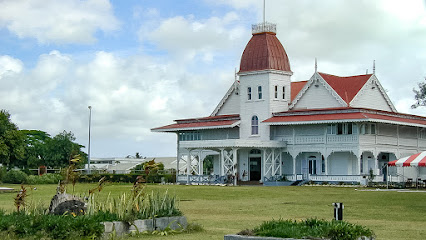
Anahulu Cave
Discover the enchanting Anahulu Cave in Tonga, a breathtaking underground wonder filled with stunning stalactites and crystal-clear waters, perfect for adventure seekers.
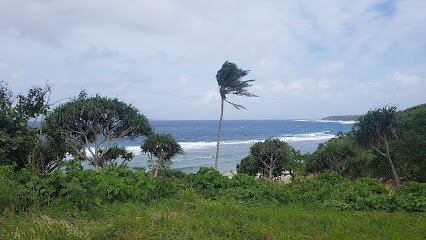
Royal Tombs
Discover the historical significance of the Royal Tombs in Nuku'alofa, a serene site celebrating Tonga's royal heritage and cultural history.
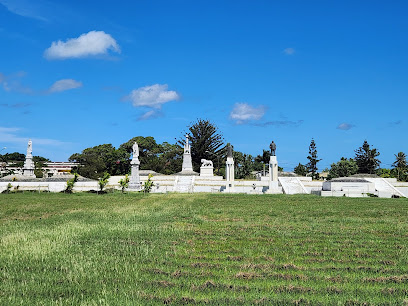
Ancient Tonga
Explore Ancient Tonga, a captivating tourist attraction in Nuku'alofa, revealing the island's rich heritage and cultural treasures.
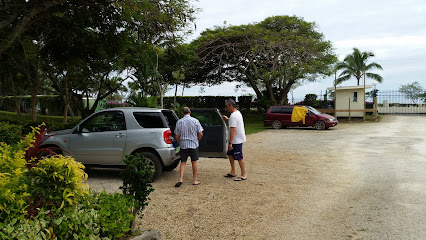
'Oholei Beach Resort
Experience the beauty of Tonga at 'Oholei Beach Resort, where relaxation meets adventure in a tropical paradise.
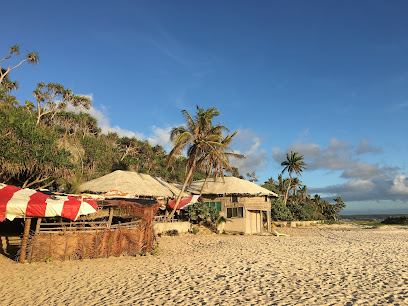
Ha'amonga 'a Maui Trilithon
Explore the majestic Ha'amonga 'a Maui Trilithon, a historical landmark in Tonga, where ancient legends and stunning landscapes come together.
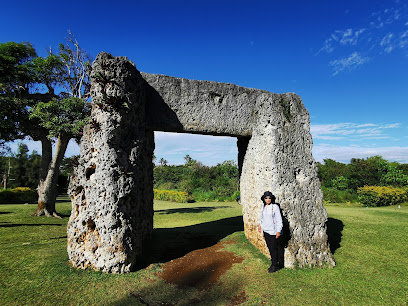
Ha'atafu Beach
Experience the serene beauty of Ha'atafu Beach in Tonga, where crystal-clear waters meet golden sands for an unforgettable tropical escape.
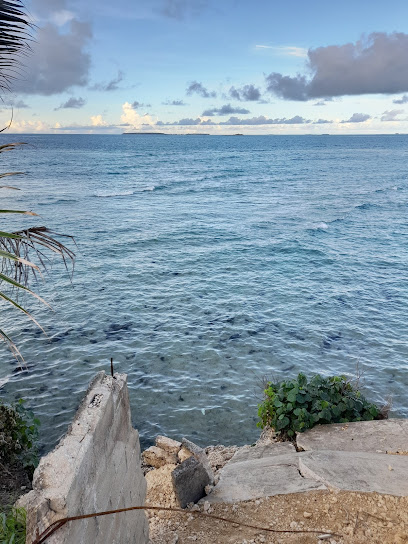
Captain Cook Landing Site
Explore the Captain Cook Landing Site in Alaki, Tonga - a historical landmark that celebrates maritime history and breathtaking coastal views.
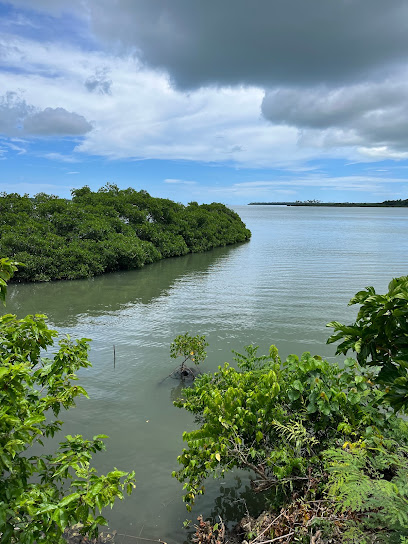
Paepae o Tele'a
Discover the rich heritage and breathtaking beauty of Paepae o Tele'a, a historical landmark in Mu'a, Tonga, offering a glimpse into Polynesian culture.
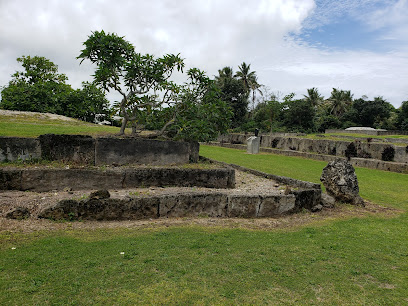
Maka Fa'akinanga
Discover the historical allure of Maka Fa'akinanga, a Tongan landmark showcasing rich culture and stunning architecture amid beautiful landscapes.
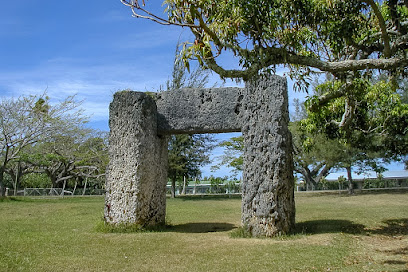
Ha'amalo Beach
Experience the tranquil beauty and vibrant culture at Ha'amalo Beach, a hidden gem in Tonga offering serenity and adventure.
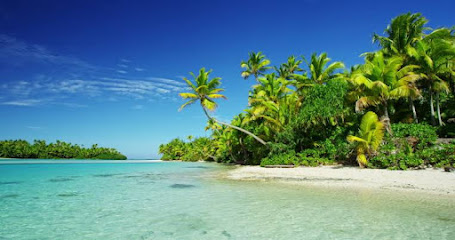
Pua-ko-Fanongo-Talanoa
Explore Pua-ko-Fanongo-Talanoa, a historical landmark in Tonga that offers a glimpse into the island's rich cultural heritage and scenic beauty.
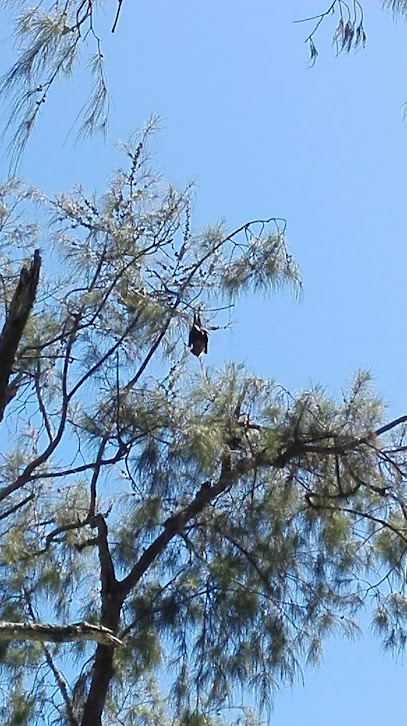
Hufangalupe
Explore Hufangalupe, an iconic bridge in Fua'amotu, Tonga, where breathtaking views meet rich cultural heritage, perfect for unforgettable memories.
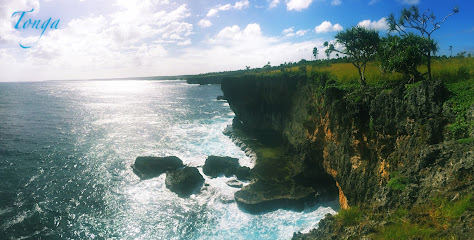
ʻEua National Park
Explore the breathtaking landscapes and rich biodiversity of 'Eua National Park, a paradise for adventure seekers and nature lovers in Tonga.
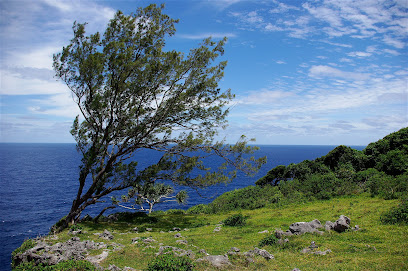
Unmissable attractions to see
Mapu'a Vaea Blowholes
Experience the breathtaking Mapu'a Vaea Blowholes in Houma, Tonga – nature's powerful spectacle of water and beauty.
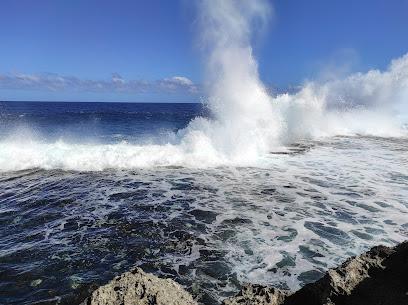
Anahulu Cave
Explore the stunning Anahulu Cave in Haveluliku, Tonga—where nature's beauty meets rich cultural heritage in a breathtaking underground adventure.
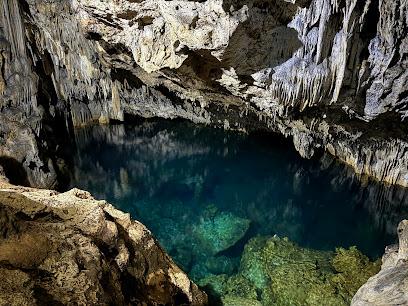
Royal Palace Of Tonga
Explore the Royal Palace of Tonga, a historic landmark reflecting the island's rich royal heritage and cultural significance.
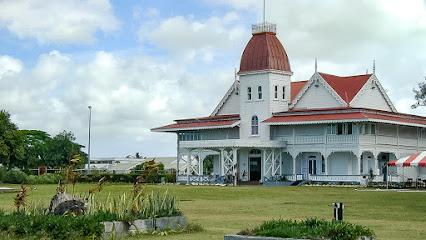
Royal Tombs
Explore the Royal Tombs in Nuku'alofa, a historical landmark that reveals the rich cultural heritage of Tonga's royal family amidst stunning landscapes.
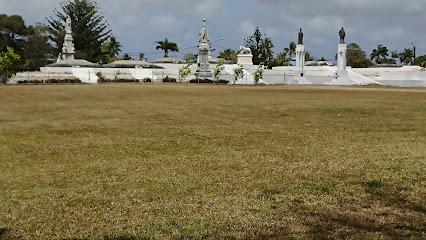
3 Headed Coconut
Explore the unique 3 Headed Coconut in Matahau, Tonga, a breathtaking natural wonder that symbolizes the island's rich culture and stunning landscapes.
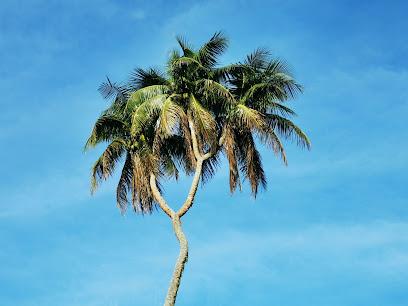
Captain Cook Landing Site
Discover the Captain Cook Landing Site in Alaki, a historical landmark where exploration and culture intertwine amidst stunning coastal views.
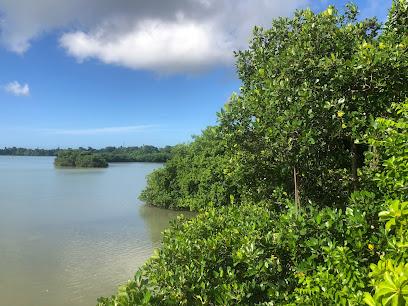
Ha'amalo Beach
Experience the tranquil beauty of Ha'amalo Beach in Tonga, a serene getaway featuring pristine sands, clear waters, and stunning sunsets perfect for relaxation.

Teta Tours
Discover the enchanting islands of Tonga with Teta Tours, your gateway to unforgettable adventures and cultural experiences.
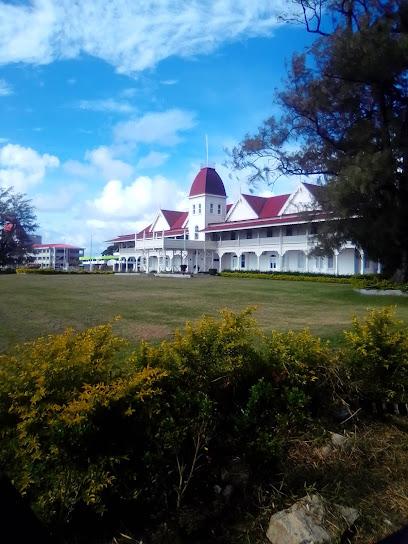
Hufangalupe
Discover the breathtaking views and natural beauty at Hufangalupe, the iconic bridge in Fua'amotu, Tonga—a must-see for every traveler.
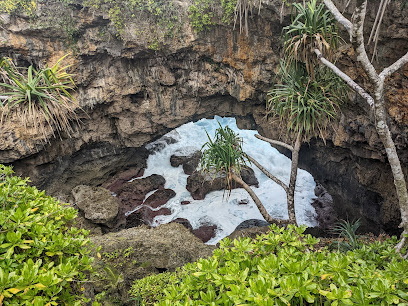
Kanokupolu Beach
Experience the serene beauty of Kanokupolu Beach, a tropical paradise in Tonga, perfect for relaxation, swimming, and stunning sunsets.

Anaheu beach
Discover the tranquility and beauty of Anaheu Beach, a hidden gem in Mu'a, Tonga, perfect for relaxation and exploration.

'Oholei Beach
Discover the enchanting beauty of 'Oholei Beach, a serene tropical escape in Tonga perfect for relaxation, adventure, and cultural experiences.

Ha`atafu Beach
Discover the pristine beauty of Ha`atafu Beach: a serene paradise in Tonga perfect for relaxation and adventure with stunning sunsets.
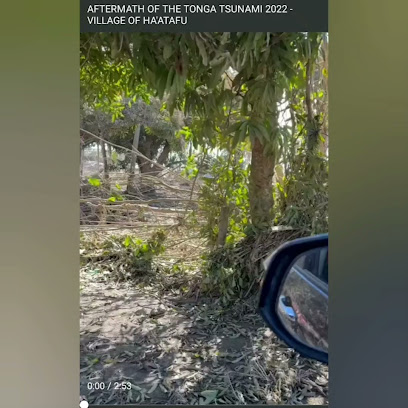
Essential places to dine
Little Italy Hotel
Discover the perfect blend of Tongan charm and authentic Italian flavors at Little Italy Hotel in Nuku'alofa.

Friends Cafe
Discover the essence of Tongan hospitality at Friends Cafe in Nuku'alofa—where fresh flavors meet vibrant culture.
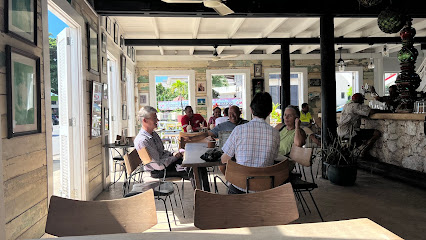
Cafe Escape
Discover Cafe Escape in Nuku'alofa – where rich Tongan flavors meet cozy vibes for an unforgettable dining experience.
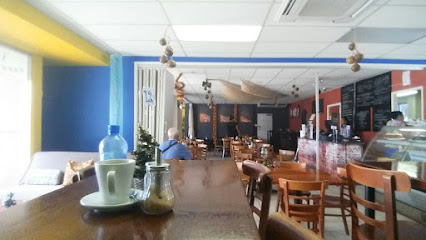
Billfish Bar and Restaurant
Experience delightful Tongan flavors at Billfish Bar and Restaurant – where culinary excellence meets vibrant atmosphere.
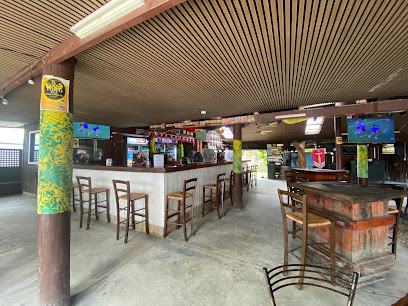
Chef Zero Restaurant
Experience the vibrant flavors of Tonga at Chef Zero Restaurant, where authentic cuisine meets warm hospitality in Nuku'alofa.
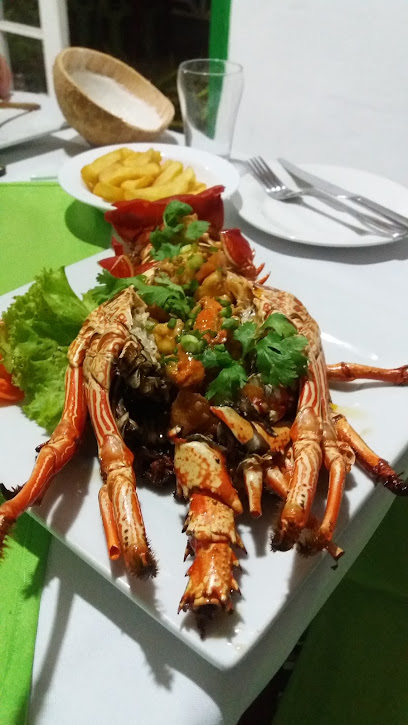
The TOP Restaurant and Lounge
Discover exquisite Tongan flavors at The TOP Restaurant and Lounge in Nuku'alofa - a must-visit culinary destination for travelers.
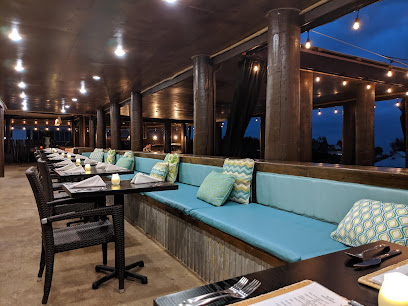
Young’s Kitchen
Discover authentic Tongan flavors at Young's Kitchen in Nuku'alofa – a hidden gem serving local delights in a warm atmosphere.
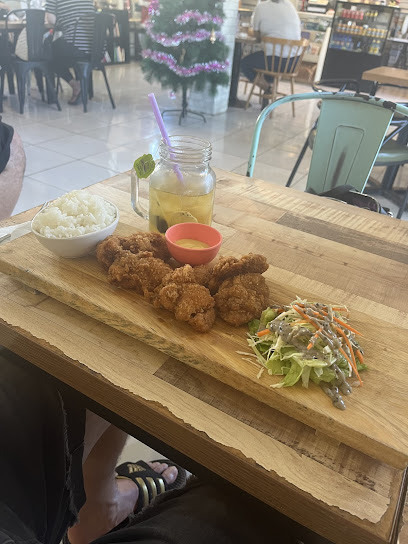
The Waterfront Cafe
Experience authentic Tongan flavors at The Waterfront Cafe with stunning views of Nuku'alofa's coastline.
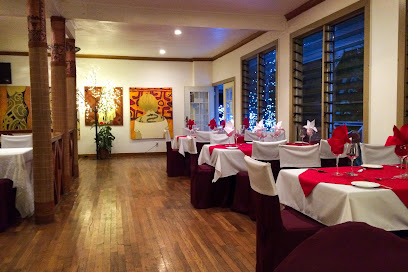
Frangipani - Korean Restaurant/Karaoke
Experience authentic Korean cuisine and lively karaoke at Frangipani in Nuku'alofa – a unique dining adventure awaits.
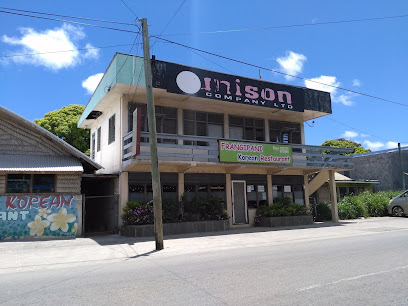
Nauti Ruby's Bar & Restaurant
Experience vibrant island life at Nauti Ruby's Bar & Restaurant in Nuku'alofa – where stunning views meet delicious Tongan cuisine.
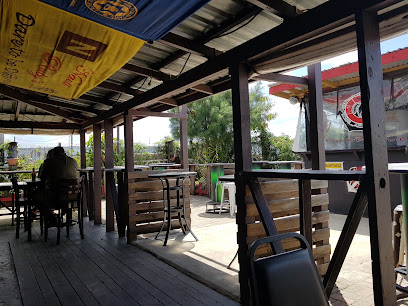
Sabrina's Chicken Vilovilo
Experience authentic Tongan barbecue at Sabrina's Chicken Vilovilo in Nuku'alofa – where every bite tells a story of local tradition.
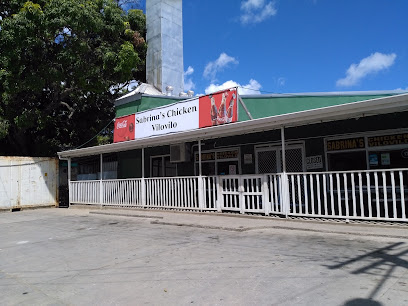
Moli Green Cafe
Experience tranquility at Moli Green Cafe, your go-to spot for exquisite coffee and local culture in Nuku'alofa.
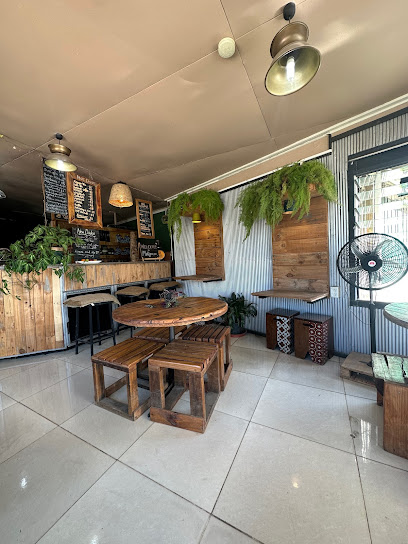
'Ofeina Restaurant
Discover authentic Tongan cuisine at 'Ofeina Restaurant, where family-friendly dining meets rich cultural experiences in beautiful Tonga.
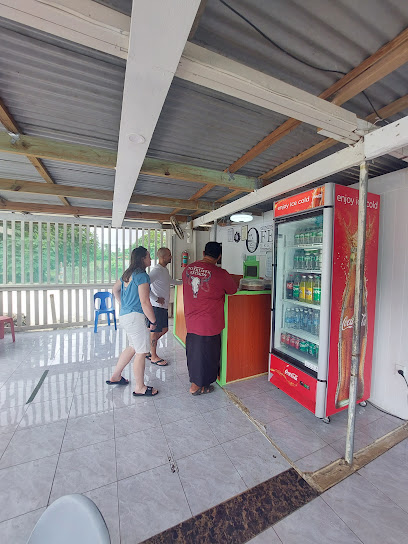
Talahiva Restaurant
Experience authentic Tongan cuisine at Talahiva Restaurant in Nuku'alofa – where every dish tells a story.

Fane Tonga
Experience authentic Tongan cuisine at Fane Tonga in Pangai - where every meal tells a story.

Markets, malls and hidden boutiques
Talamahu Market
Experience the vibrant Tongan culture at Talamahu Market, where fresh produce meets local craftsmanship in Nuku'alofa.
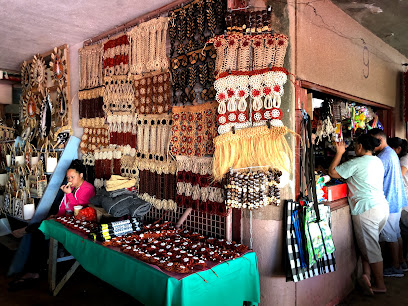
Molisi Supermarket
Explore local flavors and international products at Molisi Supermarket, the heart of shopping in Nuku'alofa, Tonga.
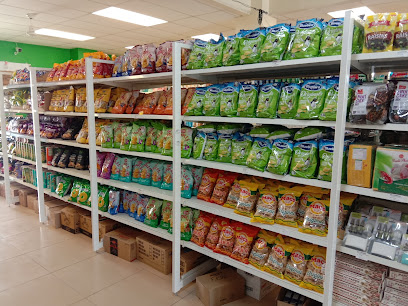
EZ TONGA ONLINE SHOPPING
Discover authentic Tongan products with EZ Tonga Online Shopping - your virtual gateway to local treasures and delicious flavors.

Si'i Kae Ola Supermarket
Discover the flavors and culture of Tonga at Si'i Kae Ola Supermarket, a vibrant hub for local goods, fresh produce, and unique souvenirs.
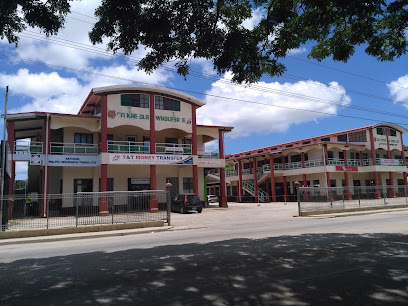
Langafonua Handicraft Centre and Gallery
Explore the vibrant artistry of Tonga at Langafonua Handicraft Centre and Gallery, where culture and craftsmanship come alive.
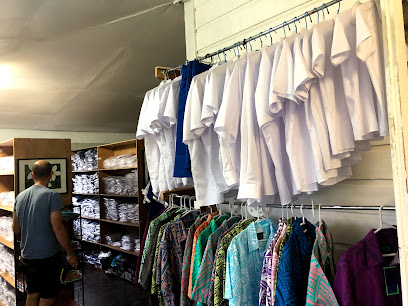
Friendly Island Bookshop
Explore Tongan culture through literature at the Friendly Island Bookshop in Nuku'alofa, a charming destination for book lovers.
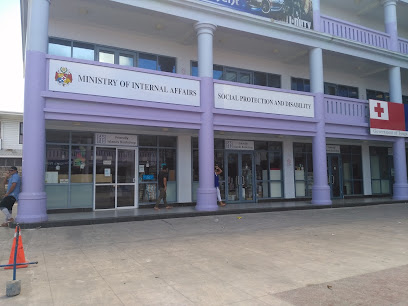
Fakafeta'i Store
Explore the vibrant offerings of Fakafeta'i Store in Nuku'alofa, where Tongan culture meets unique shopping experiences.
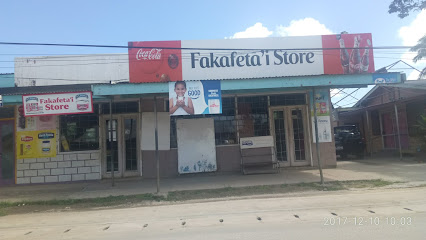
Leiola
Discover Leiola in Nuku'alofa—your go-to beer store for local and international brews, perfect for tourists and locals alike.
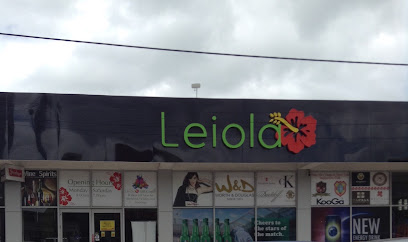
Le-Ata Tonga
Explore the vibrant culture of Tonga at Le-Ata Tonga, a boutique offering unique local clothing and handcrafted accessories in Nuku'alofa.
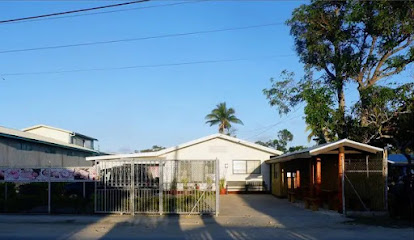
Fehoko Art Creations & The Arts of Tonga
Explore the vibrant artistry of Tonga at Fehoko Art Creations, where authentic local crafts and culture come to life in Nuku'alofa.
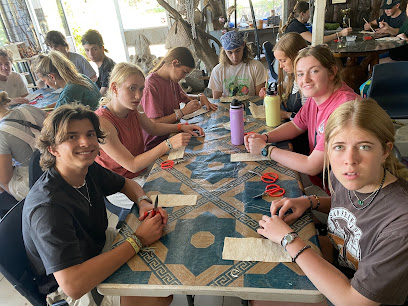
Lion Liquor
Discover a wide selection of local and international beverages at Lion Liquor in Nuku'alofa, the perfect stop for tourists seeking quality drinks.
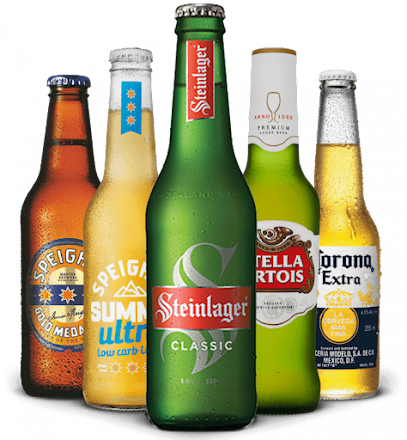
Narottam's
Discover the essence of Tongan culture through fashion at Narottam's, a clothing store in Nuku'alofa that blends tradition with modern style.
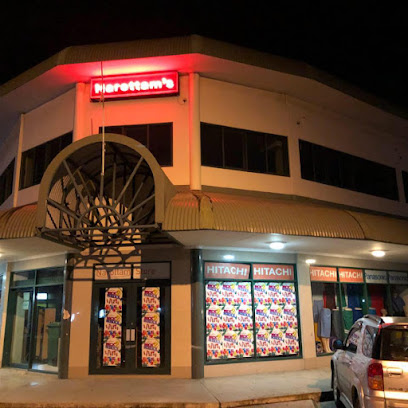
Joy's Gifts & Souvenir Shop
Explore the charm of Tonga at Joy's Gifts & Souvenir Shop, where unique local crafts and heartfelt souvenirs await your discovery.
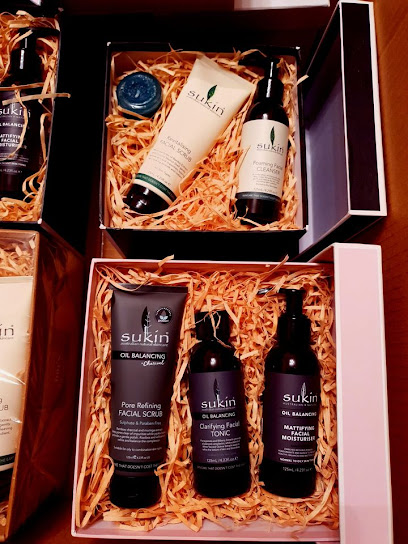
ECOFREINDLY Tonga
Discover Ecofriendly Tonga, where sustainable fashion and local craftsmanship blend seamlessly in a vibrant shopping experience.
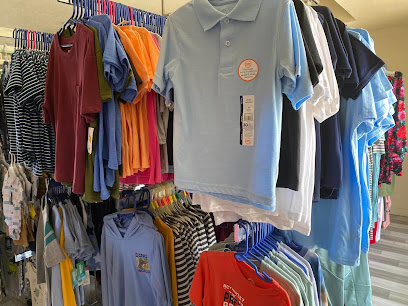
Eiko-San Clothing
Discover unique Tongan fashion at Eiko-San Clothing, where traditional designs meet modern style in the heart of Nuku'alofa.
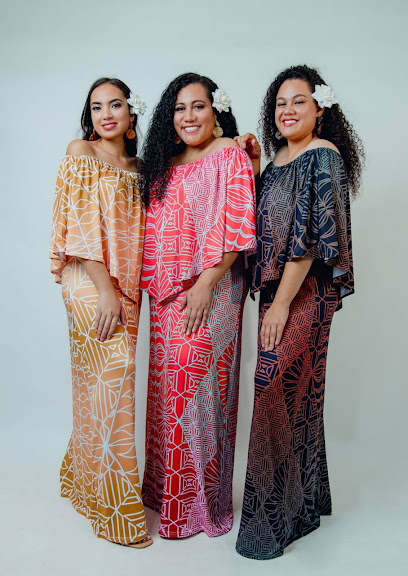
Essential bars & hidden hideouts
Little Italy Hotel
Experience the best of Italian cuisine in the heart of Tonga at Little Italy Hotel, where comfort meets culinary delight.

Friends Cafe
Discover the heart of Tongan cuisine at Friends Cafe in Nuku'alofa, where local flavors meet warm hospitality in a cozy atmosphere.
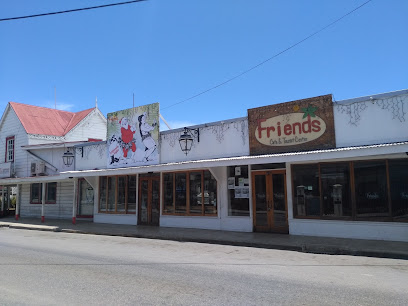
Cafe Escape
Experience the best of local and international cuisine at Cafe Escape, Nuku'alofa's top spot for coffee lovers and food enthusiasts.
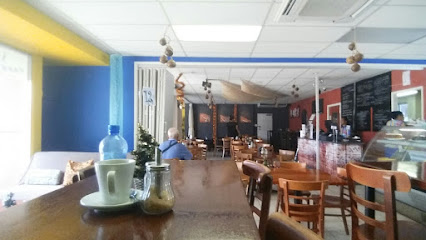
Billfish Bar and Restaurant
Discover the flavors of Tonga at Billfish Bar and Restaurant, where fresh seafood meets vibrant local culture in a stunning coastal setting.
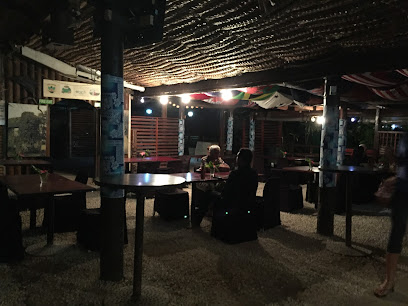
Seaview Lodge
Experience the serene beauty of Tonga at Seaview Lodge, a tranquil indoor lodging with breathtaking ocean views and unmatched hospitality.

Chef Zero Restaurant
Experience the heart of Tongan cuisine at Chef Zero Restaurant, where fresh local ingredients meet warm hospitality in a charming setting.
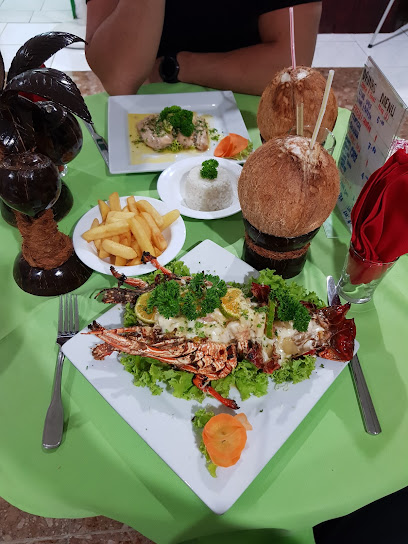
The TOP Restaurant and Lounge
Discover delectable Tongan cuisine at The TOP Restaurant and Lounge - a culinary gem in Nuku'alofa with breathtaking views.
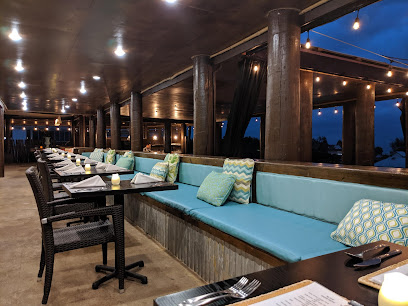
'Oholei Beach Resort
Experience the beauty of Tonga at 'Oholei Beach Resort, where relaxation meets adventure in a stunning tropical setting.
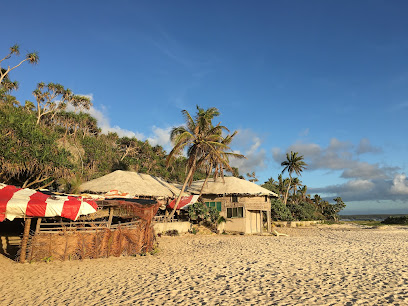
Mum's Cafe Nukualofa
Experience the authentic taste of Tonga at Mum's Cafe, a cozy restaurant in Nuku'alofa serving traditional dishes with a warm local touch.
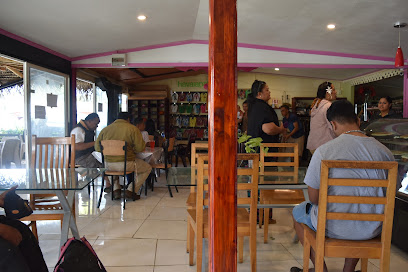
Vuna Wharf
Experience the beauty of Vuna Wharf in Nuku'alofa, Tonga – a vibrant marina offering adventure, culture, and stunning ocean views.
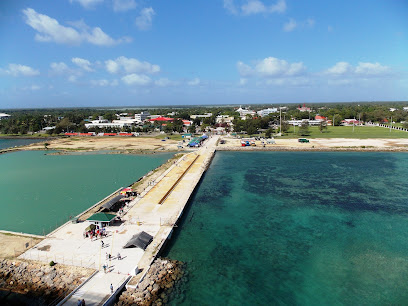
Lunarossa Deli
Savor the authentic taste of Tonga at Lunarossa Deli, known for its delightful takeout meals and vibrant local flavors.
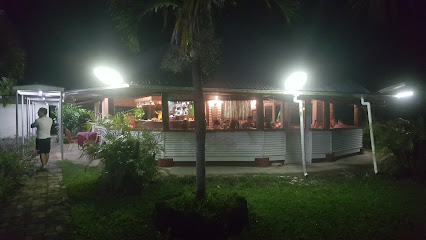
Young’s Kitchen
Experience the authentic flavors of Tonga at Young's Kitchen, a hidden gem in Nuku'alofa offering delicious local cuisine and warm hospitality.
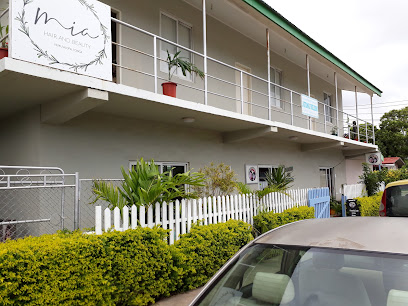
Happy Sailor Tattoo Tonga
Discover the fusion of tradition and modernity at Happy Sailor Tattoo, where unique body art meets the spirit of Tonga.
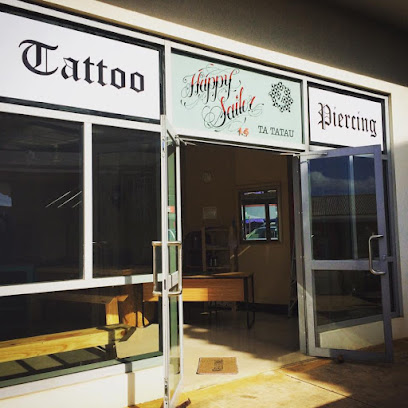
Sabrina's Chicken Vilovilo
Experience authentic Tongan barbecue at Sabrina's Chicken Vilovilo, where delicious grilled flavors and warm hospitality await you.
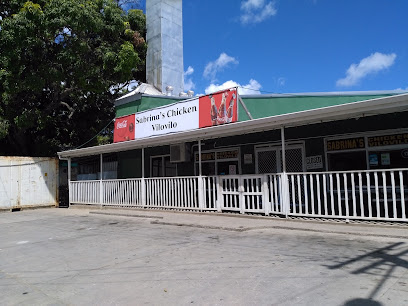
Local Phrases
-
- HelloMalo e lelei
[mah-loh eh leh-leh] - GoodbyeNofo ā
[noh-foh ah] - YesIo
[ee-oh] - NoʻIkai
[ee-kai] - Please/You're welcomeʻofa atu
[oh-fah ah-too] - Thank youMālō
[mah-loh] - Excuse me/SorryFakamolemole
[fah-kah-moh-leh-moh-leh] - How are you?ʻEku ai ha
[eh-koo ah-ee hah] - Fine. And you?Lelei. Pehe koe?
[leh-leh. peh-heh koh-eh?] - Do you speak English?Te hā faka'anglaise?
[teh hah fah-kah-ang-laise?] - I don't understandʻIkai ke lava
[ee-kai keh lah-vah]
- HelloMalo e lelei
-
- I'd like to see the menu, pleaseKapau ke faka'ilo'i e meini, fakamolemole
[kah-pow keh fah-kah-ee-loh-ee eh meh-ee-nee, fah-kah-moh-leh-moh-leh] - I don't eat meatʻIkai ke 'ai e kau
[ee-kai keh ah-ee eh kah-oo] - Cheers!Manuia!
[mah-nwee-ah] - I would like to pay, pleaseKapau ke totongi, fakamolemole
[kah-pow keh toh-tohn-gee, fah-kah-moh-leh-moh-leh]
- I'd like to see the menu, pleaseKapau ke faka'ilo'i e meini, fakamolemole
-
- Help!Fesoasoani!
[feh-soh-ah-soh-ah-nee] - Go away!Alu ki tua!
[ah-loo kee too-ah] - Call the Police!Fakapule'isi e pulisi!
[fah-kah-poo-leh-ee-see eh poo-lee-see] - Call a doctor!Fakapule'isi e 'eiki!
[fah-kah-poo-leh-ee-see eh eh-ee-kee] - I'm lostTe hina
[teh hee-nah] - I'm illTe mate
[teh mah-teh]
- Help!Fesoasoani!
-
- I'd like to buy...Kapau ke fakatau...
[kah-pow keh fah-kah-tow] - I'm just lookingTe va'inga
[teh vah-een-gah] - How much is it?Ko e u fakatatau?
[koh eh oo fah-kah-tah-tow?] - That's too expensiveTu'utu'u
[too-oo-too-oo] - Can you lower the price?Te ke fa'itokoni e u?
[teh keh fah-ee-toh-koh-nee eh oo?]
- I'd like to buy...Kapau ke fakatau...
-
- What time is it?Ko e ha taimi?
[koh eh hah tah-ee-mee?] - It's one o'clockKo e taha
[koh eh tah-hah] - Half past (10)Hengihengi e hongofulu
[hehng-ee-hehng-ee eh hohng-oh-foo-loo] - MorningPō
[poh] - AfternoonAo
[ah-oh] - EveningAhiahi
[ah-hee-ah-hee] - Yesterdayʻaneafi
[ah-neh-ah-fee] - Todayʻaho ni
[ah-hoh nee] - Tomorrowʻapongipongi
[ah-pohng-ee-pohng-ee] - 1taha
[tah-hah] - 2ua
[oo-ah] - 3tolu
[toh-loo] - 4fā
[fah] - 5nima
[nee-mah] - 6ono
[oh-noh] - 7fitu
[fee-too] - 8valu
[vah-loo] - 9hiva
[hee-vah] - 10hongofulu
[hohng-oh-foo-loo]
- What time is it?Ko e ha taimi?
-
- Where's a/the...?Ko fekau...
[koh feh-kah-oo] - What's the address?Ko e tu'asila?
[koh eh too-ah-see-lah] - Can you show me (on the map)?Te ke fakahau atu ki au (ki he mapu)?
[teh keh fah-kah-ha-oo ah-too kee ow (kee heh mah-poo)?] - When's the next (bus)?Ko e he hala 'i ha taimi?
[koh eh heh hah-lah ee hah tah-ee-mee?] - A ticket (to ....)Tiketi (ki ...)
[tee-keh-tee (kee ...)]
- Where's a/the...?Ko fekau...
History of Ha'ano
-
Ha'ano, one of the smaller islands in the Ha'apai group of Tonga, boasts a rich history dating back to ancient Polynesian times. Archaeological evidence suggests that the island has been inhabited for over a thousand years. The early settlers were adept navigators and fishermen, relying heavily on the abundant marine resources surrounding the island.
-
The first recorded European contact with Ha'ano was made by Dutch explorers Jacob Le Maire and Willem Schouten in 1616. The island was later visited by Captain James Cook in 1777 during his third Pacific voyage. Cook's interactions with the local population were relatively peaceful, and he documented detailed accounts of their customs and social structures.
-
In the early 19th century, Christian missionaries from the London Missionary Society arrived in Ha'ano. Their influence led to the gradual conversion of the local population to Christianity. The establishment of churches and schools brought significant changes to the island's social fabric, and traditional practices were increasingly replaced by Christian customs.
-
Ha'ano played a role in the Tongan Civil Wars of the 19th century, which were marked by conflicts between rival chiefly factions. The island's strategic location within the Ha'apai group made it a point of interest for rival chiefs seeking to consolidate power. The eventual unification of Tonga under King George Tupou I brought an end to these conflicts and ushered in a period of relative stability.
-
Despite the changes brought by European contact and missionary influence, Ha'ano has retained many of its traditional cultural practices. The island is known for its vibrant festivals, such as the annual 'Utafi'ia festival, which celebrates local arts, crafts, and traditional dances. These events provide a glimpse into the rich cultural heritage that continues to thrive on the island.
-
Today, Ha'ano is a blend of its historical roots and modern influences. The island's economy is primarily based on subsistence agriculture and fishing, with a growing interest in eco-tourism. Visitors to Ha'ano can explore its pristine beaches, interact with friendly locals, and immerse themselves in the island's unique history and culture.
Ha'ano Essentials
-
Ha'ano is one of the islands in the Ha'apai group of Tonga. The nearest international airport is Fuaʻamotu International Airport on Tongatapu Island. From there, you can take a domestic flight to Lifuka Island, which is the main island of the Ha'apai group. Ha'ano is a short boat ride from Lifuka. Boat services are available and can be arranged through local operators or your accommodation.
-
Ha'ano is a small island, and most of its attractions can be reached on foot or by bicycle. Local boat services connect Ha'ano to nearby islands. For longer distances, you can arrange for a local taxi or a rental vehicle, though availability may be limited. It's advisable to plan your transportation in advance, especially if you intend to explore more remote areas.
-
The official currency in Tonga is the Tongan Paʻanga (TOP). Credit cards are not widely accepted on Ha'ano, so it is essential to carry enough cash. ATMs are available on Lifuka Island, but not on Ha'ano. Therefore, it's advisable to withdraw sufficient cash before arriving on Ha'ano. Major hotels and some restaurants may accept credit cards, but smaller establishments will likely only accept cash.
-
Ha'ano is generally a safe destination for tourists. However, it is always wise to take standard precautions. Avoid walking alone at night in unfamiliar areas and keep an eye on your belongings in crowded places or during local events. There are no specific high-crime areas targeting tourists on Ha'ano, but remaining vigilant and aware of your surroundings is always advisable.
-
In case of emergency, dial 911 for immediate assistance. The local health clinic on Ha'ano can handle minor medical issues, but for more serious conditions, you may need to be transported to Lifuka or Tongatapu. It is highly recommended to have travel insurance that covers medical emergencies. Pharmacies are limited, so bring any necessary medications with you.
-
Fashion: Do dress modestly. Avoid wearing revealing clothing, especially in villages and religious sites. Religion: Do respect local customs and traditions. Attend Sunday church services if invited, and always ask for permission before taking photos of religious ceremonies. Public Transport: Do be respectful to drivers and other passengers. There are no formal public transport systems on Ha'ano, so shared taxis or boats are your best bet. Greetings: Do greet people with a friendly 'Malo e lelei' (Hello). A smile and a polite nod go a long way. Eating & Drinking: Do try local Tongan dishes and accept food and drink offerings graciously. Don't waste food, as it is considered disrespectful.
-
To experience Ha'ano like a local, visit the island's markets for fresh produce and locally made crafts. Engage with the locals; they are often friendly and eager to share their culture and stories. Attend a traditional Tongan feast or 'umu'. Don't miss the opportunity to explore the island's natural beauty, including its pristine beaches and coral reefs. For a unique experience, participate in local fishing or farming activities.
Trending Landmark in Ha'ano
Nearby Cities to Ha'ano
-
Things To Do in Foa
-
Things To Do in Pangai
-
Things To Do in Nuku'alofa
-
Things To Do in Neiafu
-
Things To Do in Ha'apai
-
Things To Do in Vava'u
-
Things To Do in Eua
-
Things To Do in Kolovai
-
Things To Do in Levuka
-
Things To Do in Nausori
-
Things To Do in Suva
-
Things To Do in Rakiraki
-
Things To Do in Savusavu
-
Things To Do in Sigatoka
-
Things To Do in Labasa



